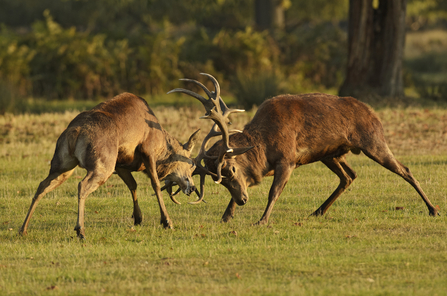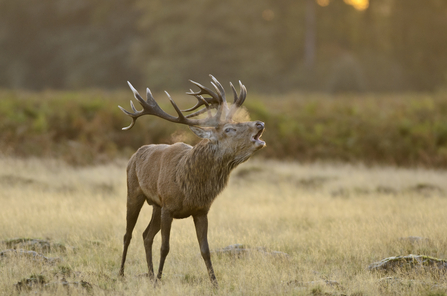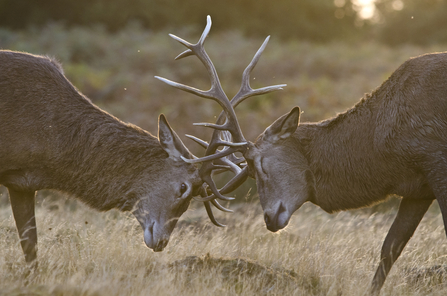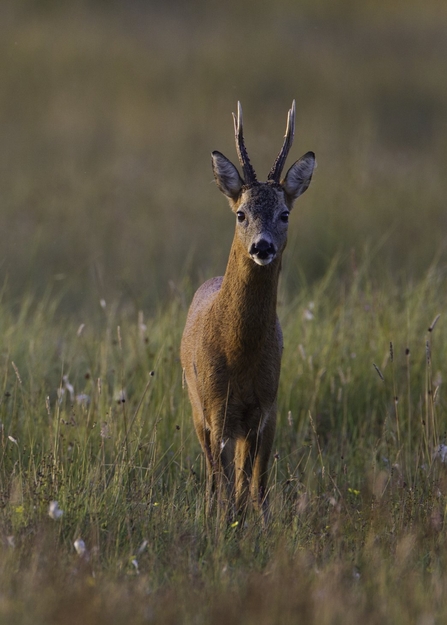In autumn, if you go for a walk on the moors or in some remote woodlands, the atmosphere will be filled with the terrifying sounds of male deer (stags). After a year of feeding and bulking up, by autumn, they are ready for a fight to show their dominance. This is called the rutting season.
What is a rut?
The word “rut” literally means “ROAR!”. It’s the sound that larger male deer make when they want to impress female deer (does) in their territory. Triggered by the shorter days, the rut is the time for males to attract as many females as they can to mate with. They do this by beating other stags in a battle of the antlers – often causing huge damage or even death in the process.

Red deer rutting © Terry Whittaker/2020VISION
Bellowing battle
The terrifying roar of a big stag can be quite scary to us humans, so just imagine how intimidating it must sound to a smaller deer that’s just about to start the fight! If a stag’s roar is impressive enough, his rival might just run away without even trying to fight. The louder the roar, the more attractive the stag is to nearby females, too.

Roe deer stag roaring © Terry Whittaker/2020VISION
Locking antlers
The battle begins with two stags sizing each other up and circling. Then when one feels they might have an advantage, he will launch himself headfirst into the head of the opponent with all the strength he can gather. The sounds of clashing antlers can be heard for miles around. Older deer usually have heavier antlers with more sharp points to do damage, but it is normally the fighter who gains the higher ground that comes out as the winner.

Red deer rutting © Bertie Gregory/2020VISION
Which deer rut?
Red deer are famous for rutting, but they aren’t the only ones that battle to be the best. There are several species of deer that have been brought to the UK from other countries, which also fight to defend territories and impress females. Like red deer, fallow deer and sika deer both rut between September and November.
The much smaller Chinese water deer rut a little later, in November and December. They have tusks instead of antlers, so fights aren’t quite as dramatic. Muntjac deer don’t have a rutting season as they breed all year, but males do sometimes scrap over females. Our only other native deer, roe deer, rut in spring. They also use their smaller, pointed antlers to battle to be head of their herd.

Roe deer buck - Mark Hamblin/2020VISION

